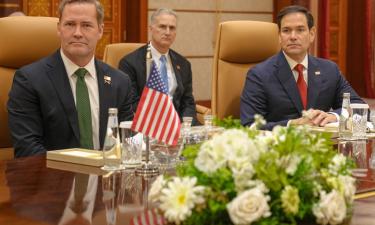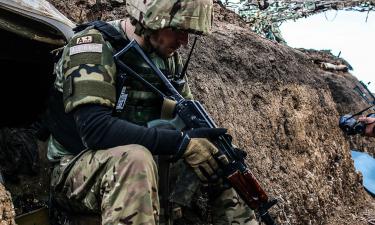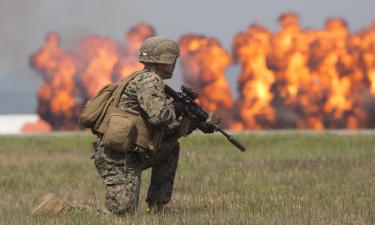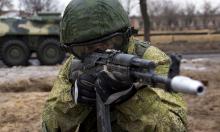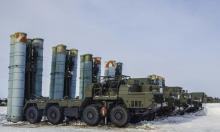The End of Career
There is no doubt that soon the president will either resign himself or the Seym will force him to resign
Less than a year ago, Rolandas Paksas scored a convincing victory at the presidential election and left then-president Valdas Adamkus behind. Political opponents and the press call Paksus "Lithuanian Vladimir Zhirinovsky" because he is the founder and the leader of the local Liberal Democratic Party. What is more, opponents accuse Paksas of populism. During his presidential campaign, the prospective president promised to compensate the damage caused by the break-up of the Soviet Union to the population of the republic and to improve their well-being.
Today, it is not that important if Paksas was actually a populist or not. The fact did not influence the wish of the electorate to prefer the younger liberal democratic leader (Paksas was 46 during the presidential election) to an aged president. Lithuanians did not even object to the eccentric behavior of Rolandas Paksas - he likes to ride his motorcycle or to plane over Vilnius (he used to be a pilot).
It was clear from the very beginning that the presidency of Rolandas Paksas would not be common. Lithuania's largest political parties that attempted to prevent victory of Paksas desired revenge. They have found a reason to revenge rather quickly.
At beginning of November, the Lithuanian press published information of the national security department under the heading: "On negative tendencies threatening the national security of the country". On October 30, the special services informed the parliament chairman and deputies of the Seym of "criminal connection" of Rolandas Paksas and his team. The information was strictly confidential; however the press published the compromising material on Paksas and his advisors in a day and a half. This proves that the publications were obviously sanctioned. The information of this sort was advantageous for Paksas's proponents in the Seym.
The Lithuanian president and his advisors were accused of connection with the notorious Russian mafia. The Lithuania special services insist that heads of several companies (they mention the names of Anzori Aksentyev, the actual head of the 21st Century Company, and Yury Borisov, the Avia Baltica company president) allegedly attempted to use Lithuania as a basis for illegal traffic in weapons, drugs and for money laundering. What is more, the national security department states that the mafia leaders are connected with Russia's specials services.
The information about connection of Paksas's advisors with mafia immediately gave rise to waves of charges against the president and made Rolandas Paksas vulnerable to pressure. It has been alleged that businessman Yury Borisov provided moneyed assistance to the prospective president during his presidential campaign but afterwards demanded some preferences for his support.
The publication of the compromising information caused a scandal. The president was summoned for an interrogation at the prosecutor's office in connection with financing of his pre-election campaign. Simultaneously, opponents of the president started demanding his resignation. However, Paksas would not resign. The leader and the members of the Liberal Democratic Party think opponents who wanted to derive political dividends from the scandal set up the fuss about the connections with the Russian mafia.
Nowadays, the Lithuanian Seym is going to bring the impeachment procedure against the president. All leading factions of the parliament- social democrats, social liberals, liberals and conservatives - have got united against the president. Lithuania Prime Minister Algirdas Brazauskas has several times recommended the president to resign on his own will. Rolandas Paksas still will not resign, however there is no doubt that soon the president will either resign himself or the Seym will force him to resign. As far as liberal democrats make up the minority in the parliament they will not be able to hamper this resignations if it is to happen.
The other day, Rolandas Paksas cancelled his visit to the US. Some observers shortly before that said that if the Lithuania president visited Washington and won American support he could have avoided impeachment. To all appearances, Paksas cannot expect to avoid it. The US never kept back its sympathy to former President of Lithuania Valdas Adamkus. Being prime minister of the country, Rolandas Paksas fell out with US's William's International that became the operator of the Lithuanian oil refinery Mazeikiu Nafta in 1999. Paksas refused to sanction selling of the enterprise to Americans, as a result of which he had to quit the prime minister post. Paksas so strongly objected to conclusion of the deal because in the framework of the agreement the Lithuanian government had to provide a loan and to exempt the new owner of the enterprise from taxes for several years. The indignation of then-prime minister was quite understandable as the oil refinery guaranteed 10 per cent of Lithuania's GDP.
In 2001, George W. Bush defended the interests of William's International. When the US president congratulated Algirdas Brazauskas with his appointment to the prime minister post, he said he expected support to investments of American energy companies in economy of the Baltic country.
The financial situation of William's International was rather lamentable at that very period. For this very reason mostly the company concluded an agreement with Russia's Yukos. As a result of the pressure from Washington, the government of Lithuania agreed to reduce the share of the government in the oil refinery Mazeikiu Nafta. So, the shares were distributed the following way: the Lithuanian government owned a bit more than 40 per cent, William's International and Yukos - 27 per cent each. Later, the American company sold its shares to Yukos. Thus, Americans profited from the deal and from consulting services as well. According to Algirdas Brazaukas, Lithuania suffered the damage of $100 million, but unfortunately the oil refinery underwent no modernization as William's International had promised.
The economic digression serves an example of the external influence that Lithuania's political elite suffers. It is highly likely that today's events in the republic are closely connected with the interests of American companies (not only the scandalous William's International) working in Lithuania.
This situation is typical of several of the former Soviet republics, not only Lithuania. However, it is not clear yet whether this is good or bad for them.
Subscribe to Pravda.Ru Telegram channel, Facebook, RSS!

